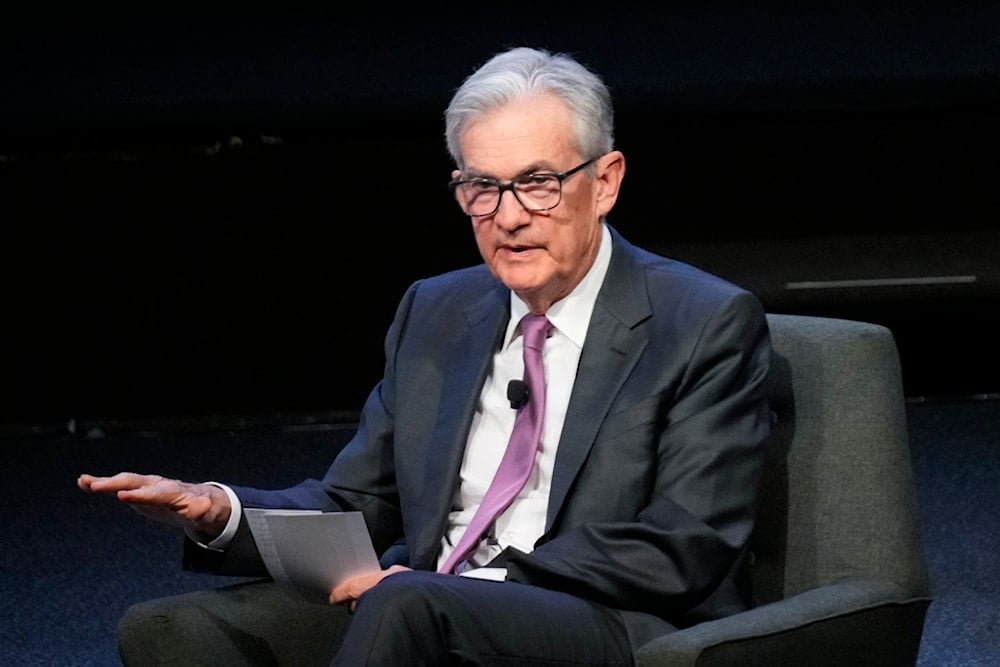Fed ready for rate increases, cautions against early end to tightening
Despite implementing 11 rate hikes over the past two years, inflation has not reached the desired levels, leading Fed Chairman Jerome Powell to caution against prematurely declaring the end of monetary tightening by the central bank.
-

Federal Reserve Chairman Jerome Powell speaks at a meeting of the Economic Club of New York, Thursday, Oct. 19, 2023, in New York (AP Photo/Seth Wenig)
Chairman Jerome Powell stated on Friday that the Federal Reserve remains prepared to increase interest rates if necessary.
Despite implementing 11 rate hikes over the past two years, inflation has not reached the desired levels, leading Powell to caution against prematurely declaring the end of monetary tightening by the central bank.
"Over the six months ending in October, core inflation ran at an annual rate of 2.5 percent, and while the lower inflation readings of the past few months are welcome, that progress must continue if we are to reach our 2 percent objective," Powell said in a live-streamed speech on monetary policy.
"It would be premature to conclude with confidence that we have achieved a sufficiently restrictive stance or to speculate on when policy might ease. We are prepared to tighten policy further if it becomes appropriate to do so."
A closely monitored inflation indicator by the Fed revealed a 3% annual growth rate for October. While this approaches the central bank's 2% target, it represents a slight deceleration from September's 3.4% expansion, according to data released on Thursday.
Read more: Fed reports US economic slowdown amid efforts to tackle inflation
The Personal Consumption Expenditures (PCE) Index, often used to gauge inflation, showed no change monthly, registering at 0.0%, a decline from the previous month's increase of 0.4%. Economists had anticipated year-on-year readings of 3.0% and a slight month-on-month increase of 0.1% for both measures.
The inflation data may play a crucial role in shaping the Federal Reserve's approach to interest rates in the upcoming policy decision on December 20 and in the months ahead.
The Federal Open Market Committee (FOMC), responsible for the central bank's policy-making, is widely expected to maintain interest rates within the range of 5.25% to 5.50% during the next month's decision. However, there is a divergence of views among policymakers, with some advocating for a potential rate hike to bring the Fed closer to its inflation target, while others are calling for a rate cut.
"The data will tell the Fed if it has done enough or needs to do more," Powell said. "Inflation still well above target but moving in the right direction. The Fed does not need to be in a rush now; we are getting what we wanted to get."
The prospect of the US economy avoiding a recession has been a highly debated topic over the past two years. The Federal Reserve has undertaken some of the most aggressive interest rate hikes in its history since the 2020 coronavirus outbreak, aiming to curb runaway inflation.
Read more: US debt to grow $5bln per day for next ten years: Bank of America
Starting from March 2022, the Fed has implemented 11 rate hikes, elevating its benchmark rate from a modest 0.25% to 5.5% per annum. This marks the highest level in 22 years.
"The strong actions we have taken have moved our policy rate well into restrictive territory, meaning that tight monetary policy is putting downward pressure on economic activity and inflation," Powell said. "Monetary policy is thought to affect economic conditions with a lag, and the full effects of our tightening have likely not yet been felt."
Powell emphasized that while the FOMC is actively managing monetary policy, there is a need for caution to prevent the policy from becoming excessively restrictive to the point where it contributes to a self-fulfilling prophecy of a hard landing for the economy.
"Having come so far so quickly, the FOMC is moving forward carefully, as the risks of under- and over-tightening are becoming more balanced," Powell said, referring to the narrowing of inflation from a 40-year high of more than 9% in June 2022 to current levels of around 3%.

 4 Min Read
4 Min Read








